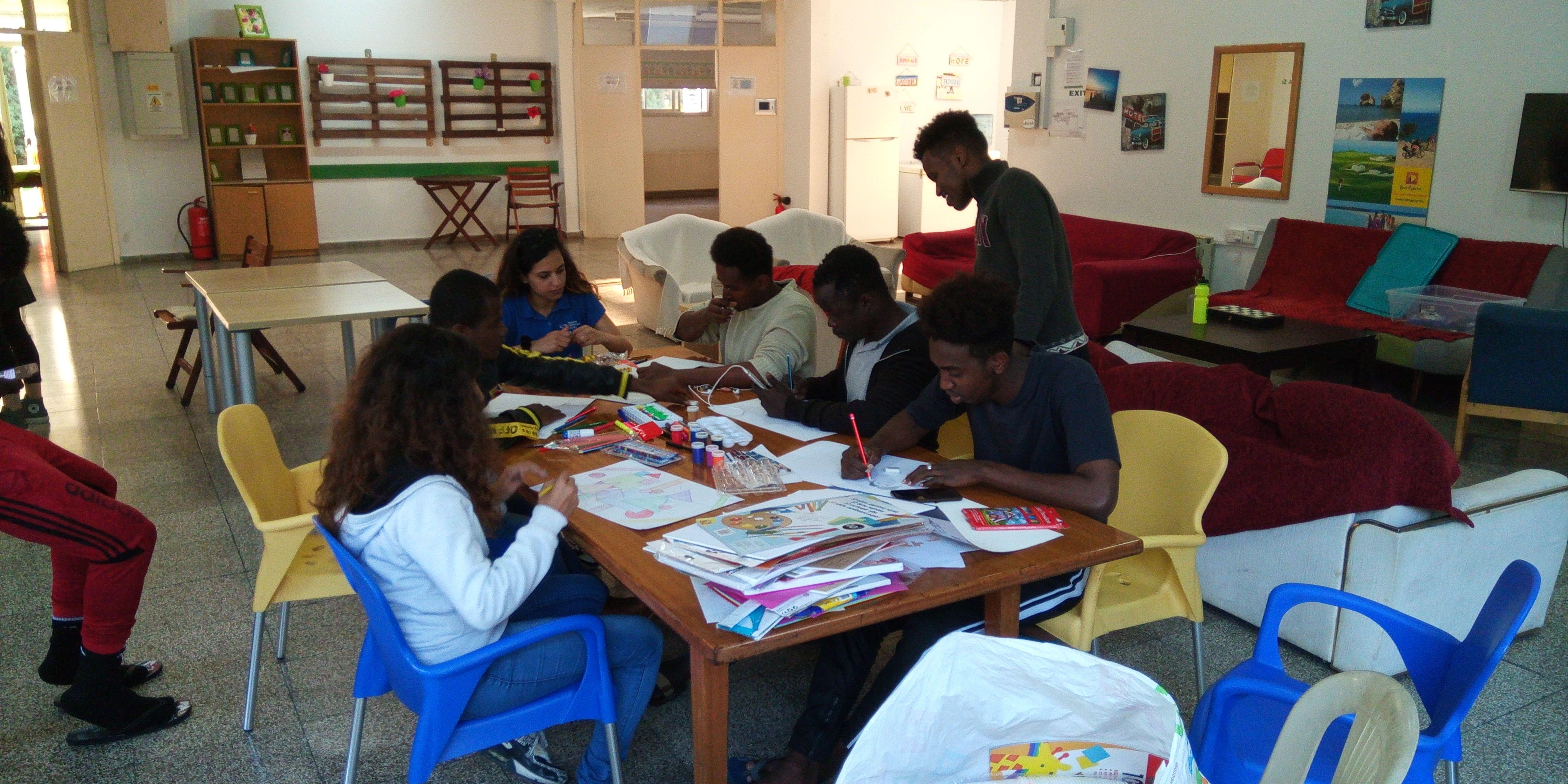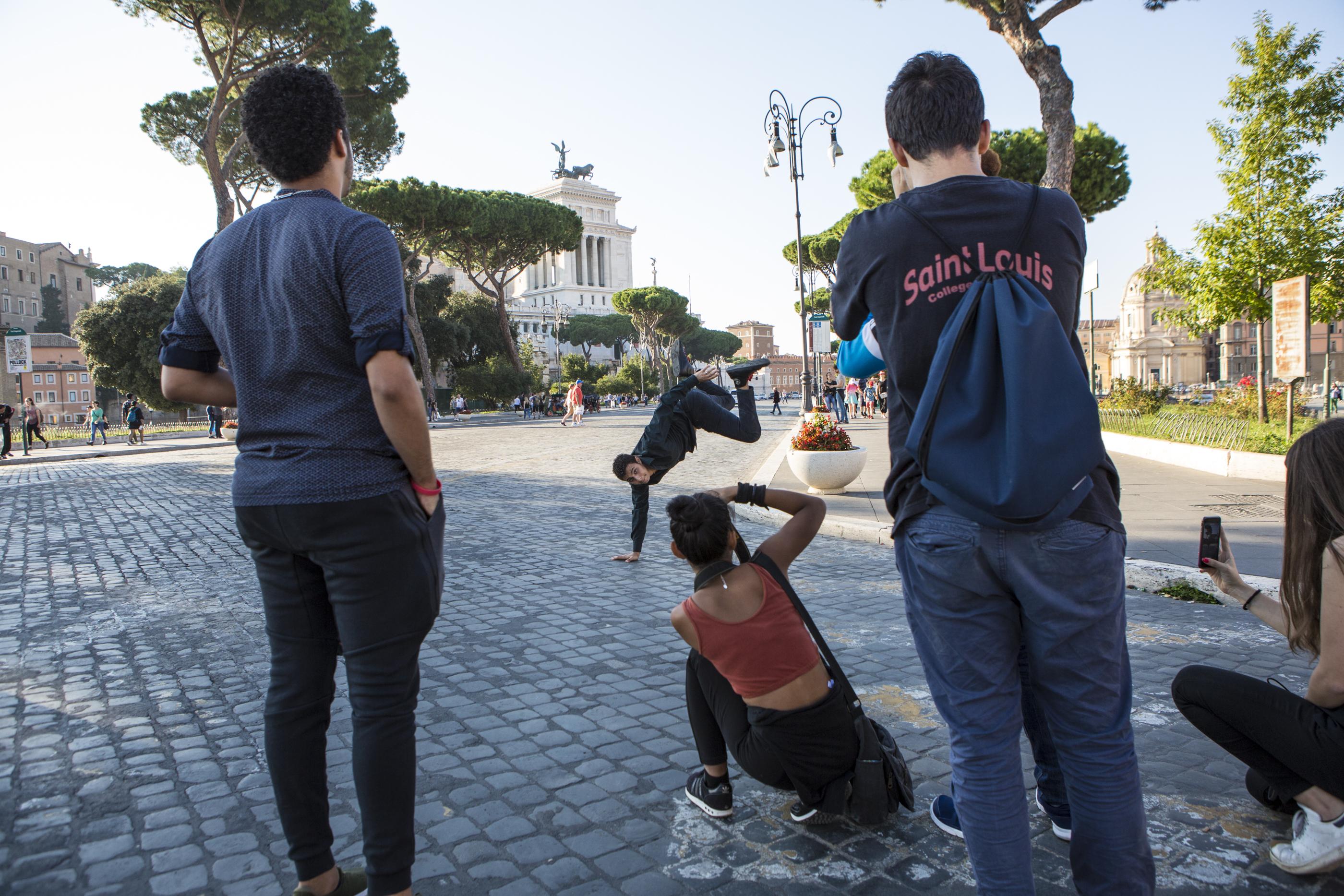
Unaccompanied minors from Syria were relocated to Spain.
© UNHCR/Susan Hopper
Content of this page:
1. Description of the refugee situation
2. Spain's response to the refugee situation
3. Steps towards meeting the objectives of the Compact
1. Description of refugee situation
Where does the population of concern live?
In urban settings.
Throughout the country in Governmental Reception Centres (CARs) and centres, flats and spaces run by national/local NGOs.
- Refugees: 23,462
- Asylum Seekers: 93,399 (Jan-Oct 2019)
- Stateless: 3,567
- Total People of Concern: 149,130
*conservative estimate figures
Find live data, information and fact sheets on the refugee situation in Spain on the UNHCR Operational Portal as well as Global Focus.
2. Spain's response to the refugee situation
An overview of how the Government has structured its ability to respond to the refugee situation, with the support of partners.
The three main ministries involved in Refugee protection and solutions – Ministry of Foreign Affairs, Ministry of Labour, Migration and Social Welfare and Ministry of Interior - are working closely together for an “all-of-Spain approach” for the implementation of the Global Compact for Refugees. This includes specific sustainable inter-ministerial coordination.
Which partnerships have been strengthened or have been made possible thanks to the implementation of the Global Compact of Refugees?
Many multi-stakeholder pilot projects involving administrations at central, regional and local level as well as the public and private sectors have been developed in Spain. These include:
- Focusing on solutions - Since 2016 UNHCR supports “Befriending”, a mentoring programme with refugees, implemented by a local NGO in collaboration with UNHCR National Association “España con ACNUR”. Since 2019, an innovative Community based Sponsorship pilot in the Basque Country, promotes the integration of resettled refugees, with the support of UNHCR, and through the cooperation between local communities, central and regional governments and two local NGOs.
- Focusing on refugees’ conditions and self-reliance - the Shire Alliance in Ethiopia, aligned with the UN Sustainable Development Goal 17, has led to the development of a public-private alliance involving energy companies, the Technological Institute of a Madrid university and the Spanish Agency for International Cooperation Development. They work to provide electricity access to refugees and train users on technical matters, enabling them to participate in their sustainability and maintenance.
- Maintaining civil society solidarity – “España con ACNUR”, one of the main UNHCR partners, is the first private donor to UNHCR and one of the largest entities supporting awareness raising on UNHCR work in the field and global partnerships with the private sector.
Partners involved
-
Central Government
-
Regional Government: Government of the Basque Region
-
Local government: Governments of Arrigorriaga and Portugalete
-
UN Agency: UNHCR
-
NGOs: Cáritas Euskadi; Jesuits platform of the Basque Region; National Association “España con ACNUR”; ONG Rescate
-
Private Sector: acciona.org, The Energy & Water Foundation; Iberdrola; Signify
-
Others: Madrid Polytechnic University – Innovation Center on Technology for Development itdUPM
3. Steps towards meeting the objectives of the Compact
Here’s a summary of how partnerships working in education, livelihoods, health and social inclusion have already transformed the lives of refugees and their hosts.
In 2019, the Government began the design of a new National Integration Plan (Plan Nacional de Ciudadanía e Integración) for greater socio-economic inclusion of refugees and is also currently working on a decentralized reception system.
It is anticipated that Spain’s pledges at the Forum will refer to reforming its asylum system together with a new national law, further developing Spain’s international cooperation, preventative diplomacy, as well as positioning Spain in a stronger position in terms of third-country solution, involving the private sector. These pledges are expected to contribute to objectives 1, to ease the pressures on countries that host large numbers of refugees, 2, to enhance refugee self-reliance, and 3, to expand access to third-country solutions, through an “All of Spain approach”.
Pledges and contributions made for GCR implementation in Spain
Pledges and contributions dashboard (interactive by Area of Focus)
This dashboard includes all pledges and contributions made towards the implementation of the Global Compact on Refugees in Spain, including national pledges made by the Government of Spain itself.




